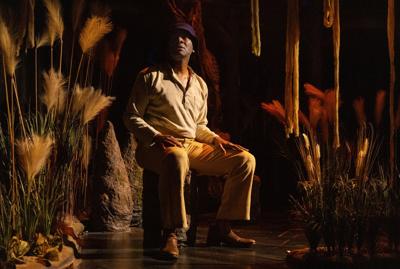— the newspaper that would later become the É«É«À² Star — described Canadian supercentenarian John “Daddy” Hall this way:Â
Shakespeare divides life into seven ages, the last of which is second childhood. If second childhood is the mark of the last stage of human life, then the subject of this sketch, although one hundred and fourteen years of age, has not left the sixth rung of the ladder, and he may yet rival Jacob, who is said to have lived one hundred and forty-seven years.
Indeed, Hall’s life, which straddled three centuries, was filled with more highs and lows than perhaps any of his peers. He lived across North America, constantly searching for a place to put down roots. He fought in both the War of 1812 and the Rebellions of 1837-38. Twice was he sold into slavery, before escaping each time. And throughout his 117 years, Hall was said to have had six wives and fathered some 23 children.Â
Much of Hall’s story, however, has largely been forgotten, lost in history and through fading memories. But a new work by Audrey Dwyer aims to change that. Her one-act play “Come É«É«À² — The Legend of Daddy Hall,” now receiving its world premiere at Tarragon Theatre, is a beautiful homage to Hall’s legacy, and a meditation on life, death and belonging.Â
It’s an expansive play that takes big swings, melding prose, poetry and instrumental music. And even though Dwyer’s slippery work never quite succeeds in fulfilling its ambitious premise, director Mike Payette’s finely detailed production still breathes glorious life into her story of a long-forgotten icon.Â

John “Daddy” Hall, in this archival photo, is said to have lived to the age of 117.
Courtesy of Grey Roots ArchivesThat’s maybe ironic given that “Come É«É«À²” isn’t exactly set during Hall’s life. But neither is it set after his death. Instead, Dwyer places the action in a transitory realm, in between life and the afterlife. We meet Hall on his deathbed, as he’s confronted by his ancestors and deceased family members, including his first wife, Mary (Helen Belay), and his parents (Brandon Oakes and Emerjade Simms).Â
In the subsequent 90 minutes, we follow Hall as he re-examines the various chapters of his life, rendered by Dwyer through fleeting scenes that feel like piercing shards. Hall staggers and stammers in and out of memories, reliving them as if they’re unfolding in real time. We soon discover, however, that something is haunting Hall, keeping him from letting go of his life on Earth and moving into the beyond.Â
Maybe it’s the memory of losing his mother as a young child. Or the image seared into his mind of Mary dying as they attempted to flee the American South. Or perhaps it’s his knowing that he abandoned his second wife, Liz (Nicole Joy-Fraser), to go to war.Â
As Hall, the ever-mesmerizing Daren A. Herbert convincingly captures all the baggage that weighs him down. Belay, too, is wondrous as the strong-willed Mary, who wants more than anything to settle down but is instead uprooted by her husband’s nomadic tendencies.Â

Helen Belay and Daren A. Herbert with Troy Adams, Emerjade Simms, Brandon Oakes and Nicole Joy-Fraser in “Come É«É«À² — The Legend of Daddy Hall” at Tarragon Theatre.Â
Cylla von Tiedemann/Tarragon TheatreDwyer’s play moves swiftly. Fragmented memories from Hall’s past emerge and recede like lapping waves. Michelle Ramsay’s lighting design, toggling between warm and cold hues, ensures these scene transitions are seamless. And Jawon Kang’s gorgeous, two-level set is also effectively used by Payette in his imaginative staging.Â
Yet despite all this, “Come É«É«À²” rarely moved me. There’s so much to Hall’s life, and even though Dwyer trims away much of the excess in her semibiographical work, the play feels several chapters too thick, preventing it from landing its emotional beats.
For that to come through, Dwyer needs to more clearly establish the parameters of this in-between world where the play is set, along with the stakes that Hall faces as he contemplates his life on Earth and his future in the afterlife. Her attempts to explore ideas of what it means to leave a legacy — Troy Adams plays one of Hall’s descendants, an underwritten role — feel especially tangential to the main plot and could either be cut or further developed. And Christine Ting-Huan Urquhart’s period costumes could also more clearly delineate the characters, especially for the actors who play more than one role.Â
Still, there’s great promise to Dwyer’s play. And even if it feels more like a sketch than a full painting of its complicated subject, “Come É«É«À²” makes you appreciate the peaks and valleys of human existence — imperfections and all.Â
































To join the conversation set a first and last name in your user profile.
Sign in or register for free to join the Conversation